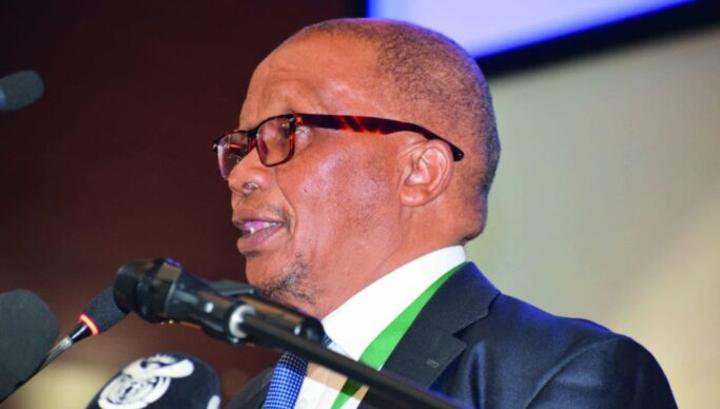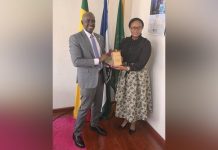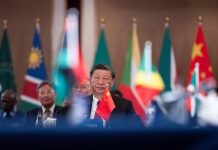Africa-Press – Lesotho. The National Reforms Authority (NRA) is facilitating a National Stakeholder Consultative Forum to garner opinions about the proposed implementation of the Transitional Justice Commission (TJC). Their facilitation is in line with their mandate to explore ways to bring national unity and reconciliation among Basotho.
Section 3 (e) of the Act states that the objectives of the NRA Act are “expedition of the national transformation of Lesotho through an independent, transparent and accountable structure of the law reforms process in the implementation of the resolutions and decisions of plenary II while 7 (1) (i) states that the authority shall recommend and formulate plans for structures, for dialogue on national reforms for purposes of national peace-building and reconciliation.
NRA Chairperson, Pelele Letsoela, said when the Southern African Development Community (SADC) facilitation team to Lesotho suggested and proposed TJC, NRA was already planning the National Stakeholder Consultative Forum in a bid to come up with a structure that will remain in place even after the NRA.
The structure is expected to look into issues of national unity and reconciliation as empowered by the Act. “TJC is a useful tool but we seek to engage stakeholders who will say how far back the process should go, identify the victims, etc,” said Letsoela in an interview with Public Eye on Tuesday this week.
In his proposal for TJC, Moseneke said TJC would, among other things, consider the deferment of the high-profile trials of politicians and any other “politically-motivated trials” until after the full implementation of the reforms.
Justice Moseneke said an “all-encompassing Transitional Justice Commission (TJC)” would suspend all high-profile cases “to allow the country to face the truth of what happened during the conflict and turmoil as a basis for the healing of the wounds and reconciliation of the nation”.
According to Letsoela, plans are at an advanced stage to hold the consultative forum following the two postponements. He said it was first earmarked for December 2020 but the corona virus situation in the country did not allow the meeting so it had to be postponed to January 2021 but “we were hit by the second wave of the virus this time”.
He was giving an update on the NRA’s work since it officially started on October 1, 2020. According to the Act, their mandate ends on September 30, 2021, with a possibility of a six months’ extension should the need arise.
While it was inaugurated sometime in February last year, their official mandate began upon the appointment of the Chief Executive, Advocate Mafiroanoe Motanyane on September 29, 2020.
His deputy was appointed on October 7, followed by some members of the secretariat in December 2020. The chairman explained that the appointment of the secretariat was delayed by the fact that NRA Regulations were behind as these were only published on November 20, 2020.
The regulations empower the management to hire staff and in (December 2020), two special advisors (experts) on economic affairs and media affairs were also hired.
Letsoela said the authority has so far successfully managed to submit three bills to the Minister of Justice for endorsement by parliament, which are: The Referendum Bill, the Tenth Amendment to the Constitution and the Human Rights Commission Bill.
Apart from experts engaged to assist them, he said they are working hand in hand with government ministries and departments in the preparation of the bills.
Apart from the three bills, he said the authority also adopted a media policy and media code of conduct which are yet to be submitted to the minister. The seven committees formed with regards to the thematic areas, he said, are each seized with a number of bills and policies in the pipeline.
Letsoela said soon to be completed is the Anti-Corruption Bill, the Independent Electoral Commission (IEC) Bill as well as constitutional amendments to provide for transformation of the office of the Director General, and the Directorate on Corruption and Economic Offences (DCEO) into a constitutionally grounded office.
However, four of their committees are yet to secure experts after failing to get suitable candidates through the application process. He said the Commonwealth has agreed to assist with three experts on; Constitutional reforms, Parliamentary Affairs and on the Public sector, while an expert on security issues will come from the African Union.
“All the experts are expected by the end of May,” he said.
For More News And Analysis About Lesotho Follow Africa-Press






